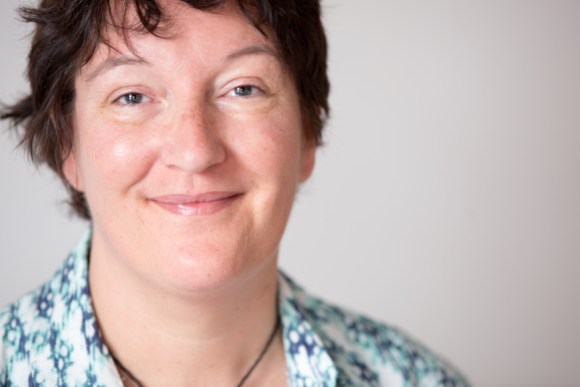Video by the Wikimedia Foundation, CC BY-SA 4.0. You can also view it on Vimeo or Youtube.
An engaged feminist, Natacha Rault has used her understanding of psychology to attract more female participants to Wikipedia.
A French-British Wikipedian raised in Geneva, Switzerland, Rault browsed Wikipedia frequently during her maternity leave, but never thought about contributing to it. “I was getting bored at home,” Rault recalls. “I found the encyclopedia on the internet and discovered a wealth of different subjects to explore. … I never clicked the ‘edit’ button until much later.”
That only happened when she learned about the website’s need for contributors like her.
Various surveys have found that between eight or nine out of every ten editors are men. This gender gap feeds into the quality of Wikipedia, and many people, including Rault, have wanted to take practical steps to change this.
“It is important to have more women participating in Wikipedia because the male perspective is often skewed a certain way to only cover certain subjects,” says Rault. “When you have a majority of men contributing to Wikipedia, you have more football articles and more articles on Pokemon, but you won’t have a lot about design, for example, a subject that would be considered ‘feminine,’ And then you have nearly nothing concerning feminism.”
In response to what Rault read about the gender gap, she created her account on Wikipedia in 2012. Rault has since used the account to edit Wikipedia nearly 10,000 times, most of which have been made to women’s biographies.
Like Rault, in September 2015, Fondation Emilie Gourd, an active feminist group in Switzerland, wanted to respond to Wikipedia’s gender gap. They asked Rault to help coordinate a conference to raise awareness about women’s participation in Wikipedia, but she didn’t think one-way communication was the best idea.
“We’re going to have 200 people coming, learning about the subject, applauding, and then going home,” Rault explains. “We haven’t advanced … towards a solution.”
In addition to the conference, Rault suggested using workshops to teach women how to contribute to Wikipedia. She focused the workshops on creating Wikipedia articles about notable women, and the majority of attendees were women themselves. Rault was able to offer customized support for the workshop attendees based on her understanding of their specific needs. “We can look at the way women and men react differently to the ‘edit’ button. Men, for example, tend to be less afraid of making mistakes. So I encouraged women to write and not to be afraid of making mistakes.”
Rault’s efforts in the last five years have helped many people understand the importance of the female perspective, and thus, content quality, on Wikipedia and has made positive moves toward addressing it.
“It’s really nice to see women, especially those who hesitated at first, smile when they have published their first article.”

Interview by Ruby Mizrahi, Interviewer
Profile by Samir Elsharbaty, Digital Content Intern
Wikimedia Foundation

Can you help us translate this article?
In order for this article to reach as many people as possible we would like your help. Can you translate this article to get the message out?
Start translation